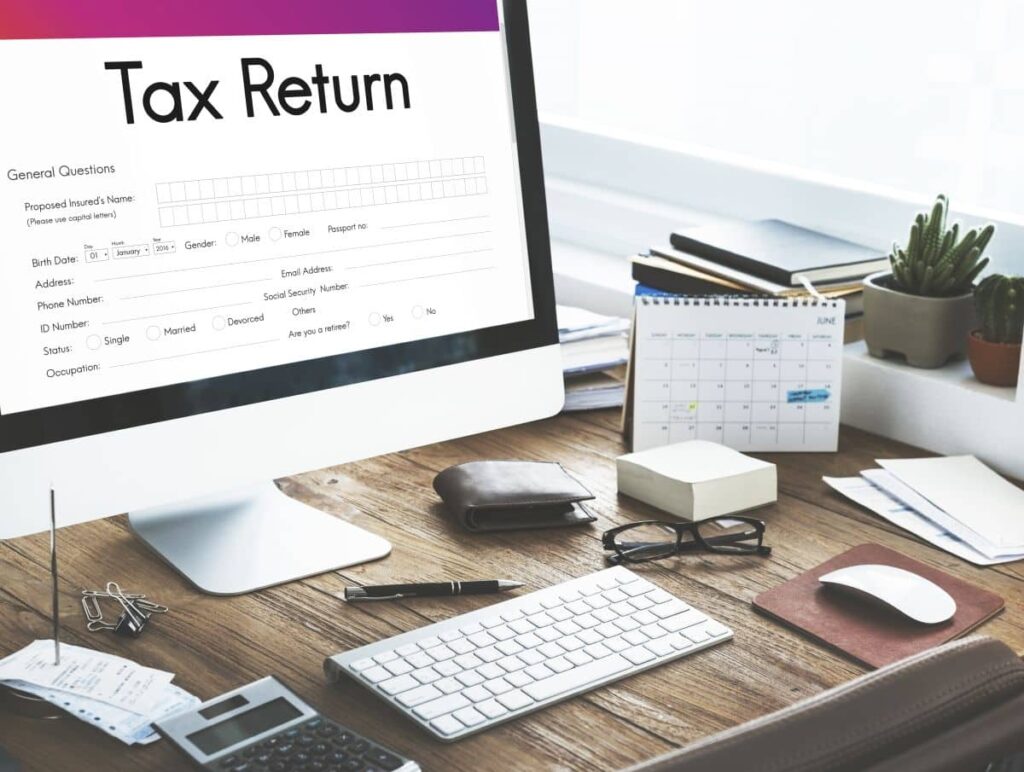There is no one approach that is superior to another when it comes to selling a small business; this is true whether you have already made the decision to sell or are just starting to weigh your alternatives. Even though every small business is unique, having a good understanding of the sales process that you use can help you make better decisions, reduce the risk you face, and safeguard your business interests. When thinking about selling your small business, here are some factors to keep in mind:
Prepare for the future
When selling a firm of any size, thorough planning and a significant amount of activity is required. However, transitioning from running a business to selling a firm is not as easy as turning a switch. It is essential to plan in order to get yourself and your business ready in advance.
To begin started, you need to organize your books and make sure that your company has a solid cash flow. It is imperative that you address any areas of your company that are in need of improvement as soon as possible, as these may prevent potential purchasers from moving forward with the purchase. The act of selling products or services takes a lot of time and can be a distraction from the day-to-day operations of a business; hence, having systems in place can be of assistance in ensuring that the business continues to run smoothly.
Books in order
Your company's books are essentially the organization's lifeline, and any person who owns a small business will attest to the fact that books don't balance themselves. It is highly likely that a potential buyer will immediately look at your financials in order to evaluate the level of risk involved. Having books that haven't been properly managed can be a red signal for potential purchasers, so invest in bookkeeping before you even consider putting the business up for sale. As part of the process of conducting due diligence, a prospective purchaser could request to see financial data such as:
- Statements of profit and loss for the previous 24 to 36 months
- Currently available balance sheet
- Any financial projections and company strategies
- Any bank loans or line of credit loans
- Financial systems and processes in your company's details
- A thorough accounting of all expenses
The most appropriate representative
The ability to sell a firm is considerably different from the talents required to start and maintain a business. Even if you may know everything, there is to know about your company and your field, successfully navigating the process of sale is a completely different story. You should always do your research and make sure you choose the correct expert to represent your transaction because receiving poor advice might end up costing you money.
A proficient accountant can provide advice on tax-efficient investment strategies
Having the correct person by your side throughout the transaction can determine its success or failure, regardless of whether that person is a broker, advisor, accountant, lawyer, or some combination of advisors. When you sell your physical business, there is also an emotional aspect at play, and letting go can be a challenging process. Even if you are selling your business, there is still an emotional connection to it. A neutral third party can assist limit that risk and ensure that the process starts on point and stays on track by ensuring both of those things.
Don't skimp on legal advice
There are a lot of moving parts involved in the process of selling a business. Because there are so many moving components and choices that need to be made, it is easy for it to become overwhelming rapidly. When selling a firm, in addition to the financial considerations, there are plenty of legal ramifications, both from the perspective of compliance and financial concerns.
Never try to take the easy way out when it comes to seeking legal counsel; this is the best piece of advice that anyone can give you. Always make sure you have the expert, trustworthy guidance of a commercial lawyer who is familiar with the ins and outs of the process of selling your company. Not only can the correct guidance help you get the greatest price, but it can also prevent you from making a mistake that could end up costing you a lot of money after the purchase has already been finalized.
Don't rush due diligence
In spite of the potential discomfort, conducting due diligence is an important and obligatory step for both parties. The prospective purchaser gets the chance to do some additional research and gain a better understanding of your company and the possibility. In the meantime, as the seller, you have the opportunity to get to know the potential purchaser and determine, prior to entering into a contract, whether or not this is the right opportunity for you. Your legal counsel and financial advisor can be of assistance to you during this procedure.
Make sure you're not selling to the wrong buyer
Since you have invested so much of yourself — including your blood, sweat, and tears — into your company, it can be tempting to get carried away while trying to capitalize on all of your hard work. It is important to choose the correct buyer because not all business transactions, regardless of the monetary value, will work out in your favour. It's possible that the first offer you receive won't turn out to be the greatest one, so before you jump at the chance, make sure you fully comprehend both the dangers and the rewards involved. When a new owner takes over a firm, things can sometimes go wrong, and if this happens, you cannot get paid in full for the sale of the company. Always get a legal opinion and a financial assessment of the offer before accepting it so that you may be sure of your position legally, financially, and from a taxation perspective.
Tax Tips For Selling Your Business

Should you sell your company, you may face a variety of tax-related challenges and complications. According to Eddie Chung, while there is no silver bullet that can maximize your tax situation for every business sale, there are several critical points that could end up saving you a significant amount of money if you consider them into the talks for the sale of your business.
When it comes to selling a business, the following considerations can assist clear up some common misunderstandings and oversights and guarantee that you receive the highest potential value for the asset you have worked so hard to build up:
Do Not Apportion The Sale Price Across Various Assets On The Contract
If you want to maximize or minimize the values connected with specific assets (for example, trading shares or depreciating assets) in order to optimize your tax situation, the purchaser's tax position may suffer as a result.
Avoiding contractually attributing set values to the assets gives the parties the ability to attribute independent values to those assets based on a reasonable allocation and apportionment of the total transaction value across all of the assets that are being sold. This is possible because the parties avoided contractually attributing set values to the assets. This gives both parties some leeway to separately optimize their tax positions, which is a benefit to both parties.
A proficient accountant can provide advice on tax-efficient investment strategies.
Delay The Contract Date Where Possible If The Agreement To Sell Is Near The End Of The Financial Year
For capital gains tax (CGT) assets – which include assets such as goodwill and real property – the CGT event associated with their sale is generally crystallised on the date of the contract rather than the settlement date.
Therefore, prolonging the contract until, for example, the first of July 2016, rather than the thirty-first of June 2016, will have the effect of delaying any CGT that is payable on the sale for a period of twelve months. Therefore, deferring taxes results in tax savings.
Discuss with the buyer the possibility of making a separate "accrued Leave Transfer Payment" to them if at all possible
This is due to the fact that you, as the seller, will be able to deduct the cash from your taxes. This is in contrast to the case in which the unpaid leave responsibilities are adjusted against the entire sale price of the business, which may alternatively reduce your CGT liability.
The tax benefit that is associated with paying the unpaid leave employee entitlement and claiming a tax deduction for it is likely to be significantly greater than the tax benefit that is associated with reducing the sale price of the business by the liabilities assumed by the purchaser. This is because the potential application of the 50 percent CGT discount and/or other CGT concessions are both factors that could come into play.
A word of caution, though: before the payout can be considered an "accrued leave transfer payment," certain conditions must first be met.
For example, the payment must be made to another entity that has begun (or is about to begin) to be required to make payment in respect of the leave liability under Australian law, award, order, determination, or industrial agreement. Alternatively, the payment may be made to a third party that has begun (or is about to begin) to be required to make payment in respect of the leave liability under
If you are selling your trading entity to the purchaser and that entity will continue to be liable for the payment of the leave liability in the future, then the payment might no longer qualify as an accrued leave transfer payment. This is because you are selling your trading entity to the purchaser.
Consider If There Are Ways To Pass On Any Carried Forward Tax Losses You Have Incurred During Your Ownership Of The Business To The Purchaser
By doing so, you give yourself more bargaining power and potentially boost the selling price of the item. Be careful, however, that the ability of the purchaser to utilise those tax losses will rely on a number of conditions, and you should keep this in mind.
For example, given that tax losses are associated with the specific entity that incurred the losses, the purchaser will need to purchase the trading entity in order to acquire those losses. In addition, certain conditions associated with the loss recoupment rules for the particular type of entity must also be satisfied for the losses to be made available to the purchaser.
In addition, if you are able to sell your interest in the entity (for example, shares in a trading company), rather than selling your business outside of the entity, you may be able to gain access to other concessions that you would not have had access to otherwise, such as a discount of fifty percent on your capital gains tax liability.
Imagine that the prospective buyer is hesitant to buy the entity because they do not want to inherit the historical trading risks associated with the company. In this scenario, you should think about the possibility of providing the buyer with indemnities by way of contractual warranties that extend over a set amount of time in the future in the event that the risks in question materialize.
Sometimes lowering the purchase price can be effective as well, provided that the price decrease is more than compensated for by tax incentives that would not have been available in any other circumstance.
Do Not Forget To Apply Available Tax Concessions That Allow You To Legally Reduce Your Tax Bill On The Sale Of Your Business
The 50% CGT reduction is perhaps the most popular concession. This discount enables you to decrease the capital gain on the sale of a CGT asset by half, provided that the business asset was owned by an individual or a trust for at least a year before it was sold.
In addition, if your aggregated group turnover is less than $2 million or your aggregated group net asset value is less than $6 million (excluding your main residence and superannuation benefits), you may be eligible for the small business CGT concessions,' which are a set of extremely powerful CGT concessions that have the potential to substantially reduce or even eliminate your CGT liability altogether. This is the case if you qualify for the small business CGT concessions.
There are specific guidelines that govern how you should compute these sums and which members of your organization should be taken into account.
Caution is advised if you want to apply for these concessions; the requirements can be convoluted and specific, and you need to ensure that you "check every box" in order to be eligible for them. If you get any of them wrong, the Tax Office may contact you in the future to tell you that your claim has been denied.
For the sake of completeness, according to the 'look-through approach,' if you structure the sale of the business so that you get paid by the purchaser in instalments that are dependent on the future performance of the business (commonly known as a 'earn-out arrangement,') then those future instalments may also qualify for any CGT discount or small business CGT concessions that may have been claimed when the business was sold. This is because the CGT discount and small business CGT concessions apply In the case of the "supply of a going concern" GST-free treatment, for example, if you sell everything that is necessary for the purchaser to continue the operation of your enterprise (or part of an enterprise), it is likely that the sale of the business will not attract GST, despite the fact that you are the "supplier" in the transaction. This is the case even though you sold everything that is necessary for the purchaser to continue the operation of your enterprise (or part of an enterprise).
Again, the devil is in the details, so you need to make sure that the way you structure the transaction will allow you to access the exemption. If it doesn't, you won't be able to avoid paying the tax (for example, if you sell the business and business premises to separate entities that belong to the purchaser).
It is always advisable to include a "GST recovery clause" on the sale contract. This will allow you to recover any GST from the purchaser in the event that the Tax Office decides in the future, for whatever reason, that you were not eligible to apply for the GST exemption. This is a precautionary measure that should be taken as often as possible.
When you get down to the nitty-gritty of the transaction, the selling of a firm may appear to be rather uncomplicated; nevertheless, this is not always the case. Because of this, it is usually a good idea to involve both your lawyer and your accountant so that they can direct you through the sale and ensure that they collaborate effectively to reach the best possible outcome.
To be more specific, your accountant should review all draft contracts and agreements from a tax perspective. This will ensure that you legally minimize your tax liability and maximize the return on all of the blood, sweat, and tears you put into building the business up to the point where it is ready to be sold.
Tax Considerations When Selling A Business
On the sale of a business, the question of whether or not tax is owed, as well as the amount of tax owed, can have a significant impact on the amount of cash that the previous owners of the business end up with. When preparation is started in a timely manner, however, there are often options available that can be chosen to decrease or even eliminate the final tax burden.
Selling Business Or Company?
This is frequently the first question that is asked, and it is one that might be important. As a general rule, individual owners should sell their shares in a company carrying on a business rather than for the company to sell its business and then distribute the proceeds because companies are not eligible for the 50 percent capital gains tax (CGT) discount. This is due to the fact that companies are unable to deduct ordinary income from their taxable capital gains.
If sellers realize how much tax is at stake, they may not give up the argument quite as easily, and it may be possible to find a way to do the deal on the basis of a share sale that satisfies both parties. Of course, not every buyer is prepared to acquire the company, and that is a matter of negotiation. However, if sellers understand how much tax is at stake, they may not give up the argument quite as easily.
CGT Concessions

The capital gains tax (CGT) exemptions for small businesses are very beneficial for companies that are able to fulfil the necessary requirements since they enable a CGT on a business sale to be completely waived or substantially reduced.
Concessions are applied after the CGT discount, and while using concessions to sell a company's business assets can result in some tax savings for the company, using concessions to sell a company's shares typically results in greater benefits and makes it simpler for shareholders to access the funds. Concessions are applied after the CGT discount.
In order to qualify for the concessions, a company must either have an "aggregated annual turnover" of less than $2 million (the SBE test) or total net assets of less than $6 million (the NAV test), although there are certain grouping rules that must be followed when related entities and individuals are involved. For instance, the NAV test takes into account the assets owned by controlling individuals, but it does not take into account the family home, superannuation balances, or assets held for personal use (such as boats, cars and holiday homes).
The sale of shares is subject to the following two additional criteria:
First, the shares must be sold by a "significant individual," which is defined as an individual who has a direct or indirect stake in the company carrying on the business of at least 20 percent. If the shares are sold by a company or trust, then certain other particular conditions must be followed.
Second, the firm in question needs to pass a test called the "active asset" test, which requires that at least 80% of the company's gross asset values have been represented by business assets for at least 50% of the time during which ownership has been held (except if the business has been carried on for more than 15 years, the test need only be satisfied for 7.5 years in total).
For the purposes of this examination, non-business assets will consist of holdings such as passive investments, loans to shareholders, and (in some instances) substantial cash amounts that are not required for the operation of the firm.
The retirement concession is available to persons who are under the age of 55, but there is a catch: the concession amount (in this case, $500,000) has to be paid into a super fund. This is something that many people are not willing to do because they need access to the total sale proceeds.
You also have the option of reinvesting the $500,000 into another active asset, such as shares in a company that is currently operating a business, provided that you meet the criteria of a significant individual and have an interest in the company that is at least 20 percent. However, this solution is not appropriate for every circumstance.
Other Tax Considerations
Consider also taking a look at the proportion of the operating company's profits that have been kept, as well as any corresponding franking credits. It is common for a share sale agreement to require that any profits be paid out as dividends to the existing shareholders prior to settlement. Because of this, it is in your best interest to plan to make dividend payments over a number of years so that you are not forced to pay large dividends right before the sale, the majority of which may be subject to the highest marginal tax rate. Even once franking credits are taken into account, there is still a "top-up tax" of approximately 23 percent.
The ownership structure of the operating company is a problem that is connected to this one.
If a single person owns all of the company's shares, then that person is entitled to collect the entirety of the dividends.
If there are multiple entities that own shares, then any dividends will be split among all of the shareholders, and it is more likely that at least some of the payments will be taxed at lower marginal rates. If there are multiple entities that own shares, then any dividends will be split among all of the shareholders.
Be mindful, though, of establishing different classes of shares, each of which carries its own unique set of dividend rights; doing so might make it significantly more challenging to claim small-business CGT concessions on a sale.
According to our findings, the method in which all of the shares are owned by a family discretionary trust is the clearest and most efficient way to go about things. If more than one family is involved, then numerous family trusts should be used.
This allows for maximum flexibility, as dividends can be paid up to the family trust (or trusts), and then distributed amongst various family members each year according to what is deemed appropriate. Additionally, this makes it quite simple to satisfy the requirements for the small business CGT concessions.




















